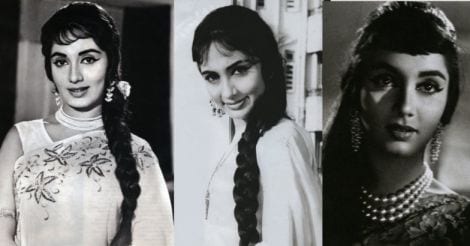Mumbai: Veteran Bollywood actress Sadhana Shivdasani, popularly known as Sadhana, passed away on Friday morning here after a long battle with cancer. But her famous fringe haircut - known as her trademark 'Sadhana Cut,' now given a modern twist, continues to be loved by many.
A top-rung Bollywood star in the 1960s and 1970s, Sadhana was hailed for her performances in films like "Ek Musafir, Ek Hasina," "Asli Naqli," "Mere Mehboob," "Waqt," "Aarzoo" and "Mera Saaya." But she was also considered to be iconic for her own style.
Hair expert Bina Punjani shared that the elements of the hairdos from the 1960s are timeless.
"Fringes have become timeless as they help to alter features to hide a big forehead or enhance tiny eyes. There are technical reasons why people use fringes across different age groups even today. Though the references are more modern. It has transformed to suit hair types," she said.
Another expert Dhruv Abichandani said that her looks as well as the looks of other actors of the past have inspired them to create newer trends.
"We take that and give a modern twist. She (Sadhana) had a soft fringe. Now, the fringes are stronger which is more stylish and relevant. They can be sightly rounded or asymmetric. We do look at the past for inspiration, but need to modernize the look," he said.
Hair expert Sachin Dakoji said that Sadhana used to sport the look to hide her broad forehead.
"Her look was inspired by Audrey Hepburn. Bollywood still finds her iconic. Now, not many people remember it, but people like fringe benefits. A fringe still remains popular. For Indian women, it is an ideal hairstyle especially for women who don't want to cut the length at the back. A fringe in front gives an immediate visible change," he said.
Dakoji has also recommended the look for the party season.
"If someone is not daring at heart, you can go for false fringes which you can wear for parties for the new year," he added.
(With agency inputs)
























 Sadhana's famous fringe haircut - known as her trademark 'Sadhana Cut,' continues to be loved by many.
Sadhana's famous fringe haircut - known as her trademark 'Sadhana Cut,' continues to be loved by many.
Disclaimer
The comments posted here/below/in the given space are not on behalf of Manorama. The person posting the comment will be in sole ownership of its responsibility. According to the central government's IT rules, obscene or offensive statement made against a person, religion, community or nation is a punishable offense, and legal action would be taken against people who indulge in such activities.